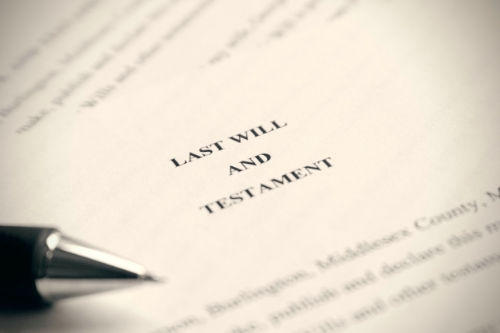Outside of the legal community, we often hear the word “estate” used to describe the sum total of a person’s property at death, including real estate and personal property. We also have a vague notion that we want most, if not all, of that estate to “avoid probate,” and that estate taxes must likewise be avoided or minimized. To this end, financial and estate planners are often enlisted to minimize a person’s probate and taxable estate through the use of gifts, trusts, financial products, joint arrangements, etc. Nevertheless, at death, that person’s heirs and beneficiaries often find that probate of the estate is still required and that the estate, despite all the pre-death planning and transfers, may owe state or even federal estate taxes. So what are we talking about when we talk about an estate?
The definition of an estate differs according to context. A probate estate is different from a taxable estate, and the rules for calculating an estate for Massachusetts estate tax purposes differs from an estate for federal estate tax purposes.
Probate Assets
The probate estate comprises all assets held in your name only at death which do not automatically transfer to another individual by reason of your death. Such assets may include bank accounts, cars, personal belongings, and real estate. These assets, as part of your probate estate, are disposed of pursuant to the terms of your Will through the probate process, and are subject to creditor claims and the costs of administration.
Non-Probate Assets
In contrast, non-probate assets pass automatically at death by contract or by operation of law and include, for example, jointly held bank accounts, payable-on-death accounts, life insurance, assets held in a revocable trust, and real estate held jointly with a right of survivorship (e.g. real estate owned by husband and wife in Massachusetts as “tenants-by-the-entirety”). Non-probate assets are not included in your probate estate and are therefore unaffected by the terms of your Will. Rather, the contract governing your interest in such property (i.e. the life insurance beneficiary designation) or the instrument by which you took title (i.e. the deed to a husband and wife), will determine the disposition of your interest at death.
Avoidance of Probate
It has become popular for planners to minimize the probate estate under the belief that the probate process is expensive, slow, open to the public, and therefore undesirable. For many, this strategy has become a simple matter of routine. While there is some truth to each of these concerns, it is important to understand that probate-avoidance is not a one-size-fits-all planning strategy. Rather, the probate process is fundamentally geared towards ensuring the orderly and fair distribution of wealth to succeeding generations, and it does a fairly good job of that. The Probate Courts can be asked to ensure a Personal Representative’s compliance with the law and can protect the interest of estate beneficiaries through a variety of mechanisms, including surety requirements and various orders to interested parties. Mismanagement of non-probate assets, in contrast, can be very difficult if not impossible to rectify. Therefore, the decision of whether to structure an estate so as to “avoid probate” should be made only after thoroughly considering the costs as well as the benefits.
Taxable Estate
How is it, then, that a minimal or non-existent probate estate may nevertheless be subject to state and/or federal estate taxation? Estate taxes (also referred to as inheritance taxes) are simply taxes on the transfer of wealth at death. The State (here, meaning government generally) takes a more expansive view when defining your estate and includes not simply those assets held solely in your name at death, but also includes all assets in which you had an interest at death. Accordingly, all of those non-probate assets that transferred to another individual at your death, including life insurance, joint bank accounts, and real estate, are generally includable in your gross taxable estate, as are certain lifetime gifts. Consequently, tax professionals and the IRS refer to a more comprehensive pool of assets when referring to an estate than does the Probate Court. Moreover, the Massachusetts Department of Revenue and the IRS have different rules for calculating the value of your Massachusetts and federal estate taxes, respectively, if any.
While the specifics of state and federal estate tax planning are far beyond the scope of this article, anyone thinking about the estate planning process should be aware generally of the distinctions between probate and non-probate assets and their relationship to the taxable estate. If you have questions about avoiding probate and minimizing potential estate taxes, please give us a call today.



